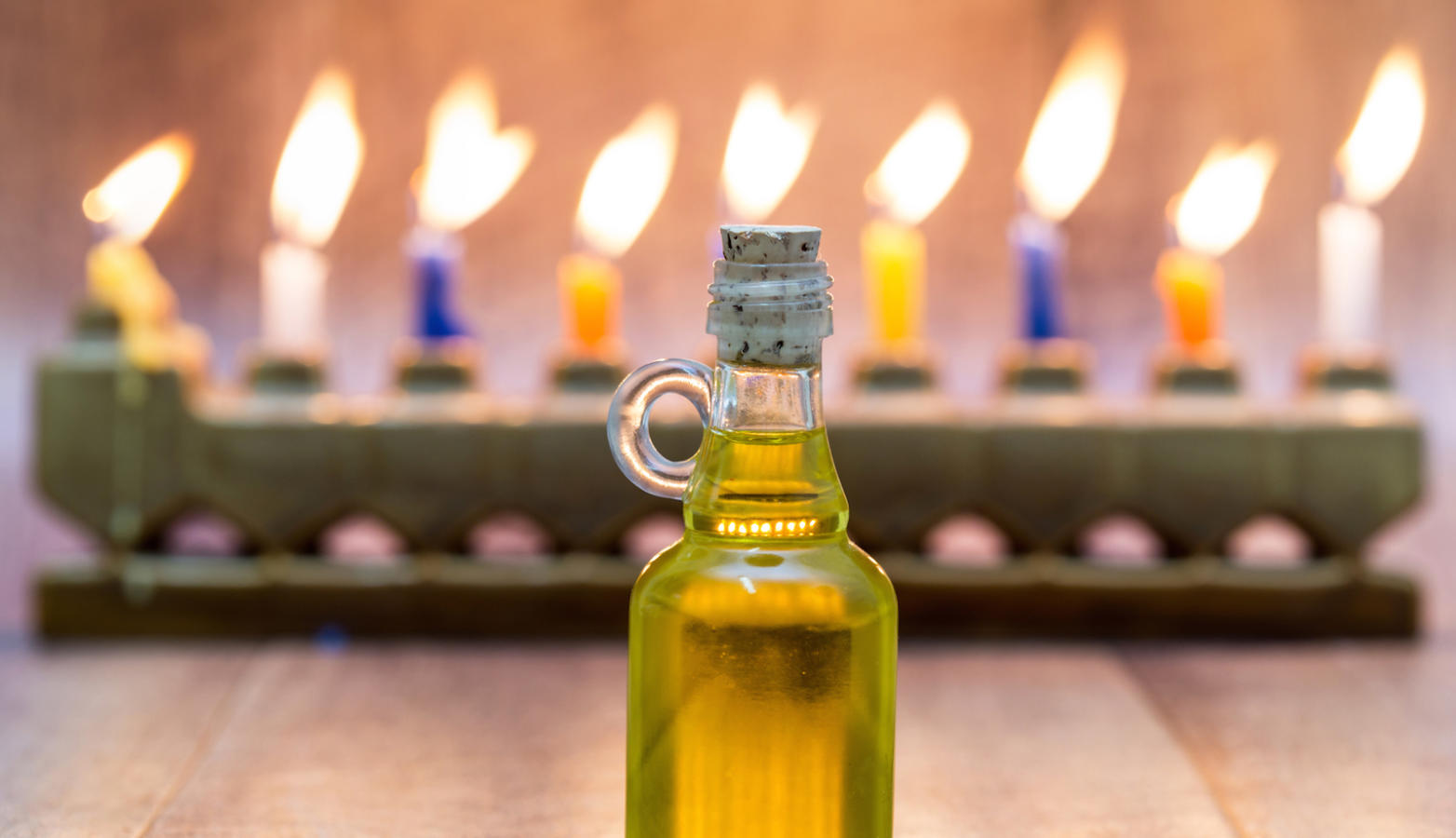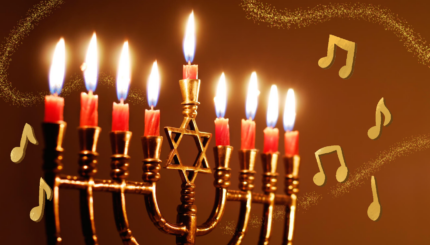Unlike I and II Maccabees, the Talmud barely touches on the armed struggle, never mentions the word Maccabee, and of the leading rebels, names only Mattathias. The Mishnah (on which Talmud commentary is based) references Hanukkah only obliquely, referring to a “ner Hanukkah” when talking about damages, and the few relevant passages in the commentaries begin “What is Hanukkah?” (Mai Hanukkah?) as though its significance had been forgotten. The response redirected the holiday.
The rabbis said that when they reclaimed the Temple, the Hasmoneans found a single cruse of pure oil still bearing the unbroken seal of the high priest. Although only enough to last one day, it miraculously burned eight days, the amount of time needed to secure a new supply of oil to keep the menorah lit. In the following year, the holiday, to be observed with songs and praises, was ordained, a distinction that presented Hanukkah as a rabbinic, and not Hasmonean, proclamation.
Excerpted from Celebrate! The Complete Jewish Holiday Handbook. Reprinted with permission of the publisher. Copyright 1994 by Jason Aronson Inc.
Explore Hanukkah’s history, global traditions, food and more with My Jewish Learning’s “All About Hanukkah” email series. Sign up to take a journey through Hanukkah and go deeper into the Festival of Lights.
With your help, My Jewish Learning can provide endless opportunities for learning, connection and discovery.
Hanukkah
Pronounced: KHAH-nuh-kah, also ha-new-KAH, an eight-day festival commemorating the Maccabees' victory over the Greeks and subsequent rededication of the temple. Falls in the Hebrew month of Kislev, which usually corresponds with December.
Talmud
Pronounced: TALL-mud, Origin: Hebrew, the set of teachings and commentaries on the Torah that form the basis for Jewish law. Comprised of the Mishnah and the Gemara, it contains the opinions of thousands of rabbis from different periods in Jewish history.



